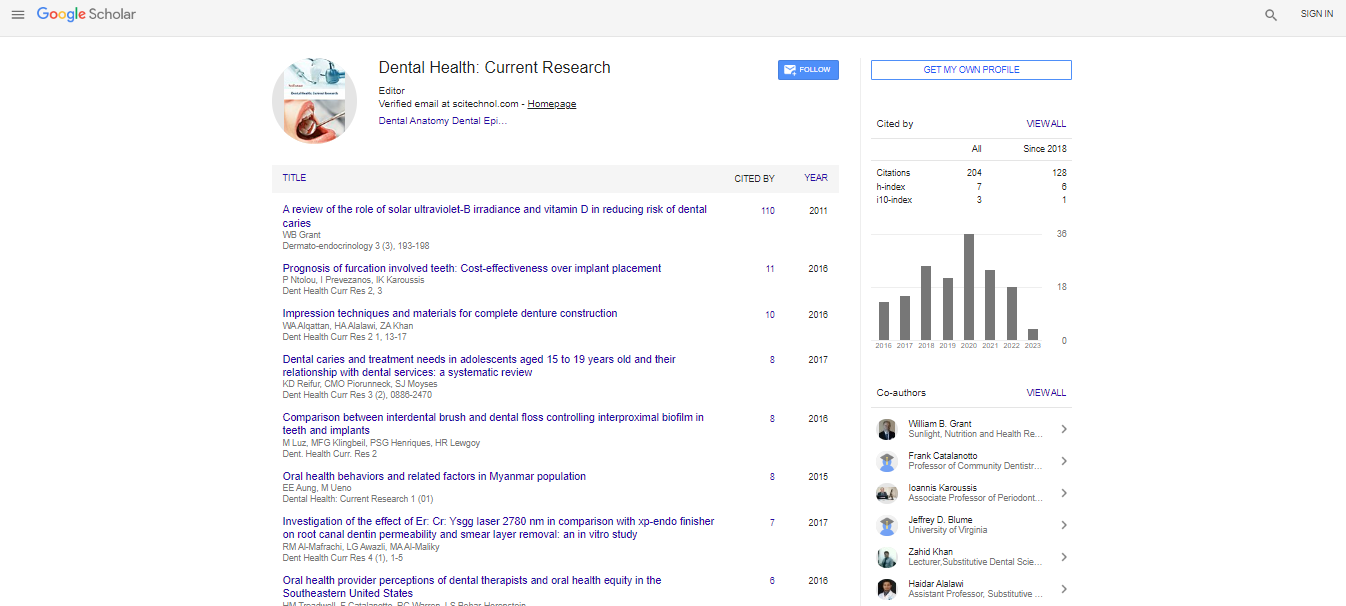Clinical evaluation of two one-bottle dentin adhesives at three year
Ahmed Elmarakby
Alfarabi College, Saudi Arabia
: Dent Health Curr Res
Abstract
Background: The method currently used to adhere resin to dentin involves etching, priming and bonding. Many commercial adhesives now combine priming and bonding functions in a single solution, and these are frequently called one bottle adhesives. The purpose of this study was to compare the 36-month clinical performance of two commercial one-bottle adhesives. Materials & Methods: The author enrolled 33 patients with non-carious cervical lesions in the study. A total of 101 lesions were restored with either a filled, ethanol-based adhesive (OptiBond Solo, SDS Kerr) or an unfilled, acetone-based adhesive (Prime & Bond 2.1, Dentsply Caulk) and a hybrid resin-based composite (Filtek Z250, 3M ESPEE USA). Enamel margins were not beveled, and no mechanical retention was placed. The restorations were evaluated at baseline and six months, 18 months and 36 months after placement using modified Cvar/Ryge criteria. Results: The retention rates at 36 months were 93.3 % for the ethanol-based adhesive and 89.4 % for the acetone-based adhesive. The difference in retention rates was not statistically significant. In both groups, 12 % of the retained restorations had marginal staining, but no recurrent caries was detected around any restoration. Other restoration characteristics such as marginal adaptation and color match remained excellent three years after placement. Conclusions: The performance of both adhesives was excellent during this 36month clinical trial. At the most recent recall evaluation (that is, 36 months), the filled, ethanol-based adhesive exhibited slightly better bond durability, but the difference between the two materials was not statistically significant. Clinical Implications: The one-bottle adhesives evaluated in this study provided excellent clinical retention of Class V restorations without mechanical retention. When the materials are used properly, restorations are retained at a high rate during at least three years of clinical service.
 Spanish
Spanish  Chinese
Chinese  Russian
Russian  German
German  French
French  Japanese
Japanese  Portuguese
Portuguese  Hindi
Hindi 